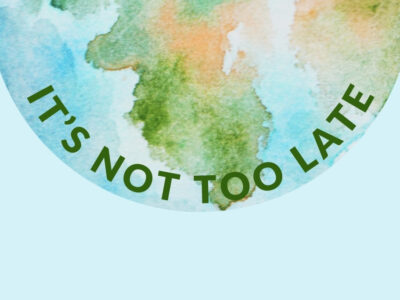It’s the little things

People tend to pay a lot of attention to large animals and plants, which we find interesting and attractive. We know that bias affects policy decisions; we preferentially protect “charismatic megafauna.” But the big appealing creatures wouldn’t exist without the tiny, uncharismatic ones that form the base of the food web.
And those little things may be disappearing unnoticed. A new study in Nature (subscription required) by Boris Worm and colleagues at Dalhousie University concludes that phytoplankton (the tiny photosynthetic organisms in the ocean), which account for roughly half of the earth’s primary productivity, have been declining at a rate of about 1% per year in most of the world’s oceans since 1899. There is a lot of short-term variability, but they conclude that long-term global decline is “unequivocal.” They link that long-term decline to increasing sea surface temperatures.
If you can’t access the paper itself, New Scientist‘s Short Sharp Science blog has a brief story about it.
Reader Comments
4 Replies to “It’s the little things”
Comments are closed.








Not exactly on topic, but a link you may appreciate–a sad, eye-opening article in last week’s New Yorker about the deliberate, wholesale decimation of song birds in southern Europe.
http://www.newyorker.com/reporting/2010/07/26/100726fa_fact_franzen
http://www.newyorker.com/online/2010/07/26/100726on_audio_franzen
I guess ‘decimation’–from one tenth–is not exactly right. Each year’s slaughter is something like 20% of the European avian migration. Decimation, one could say, doesn’t tell the half of it.
What words are left to describe the consequences of our actions? Every pleading call for us wake up or change seems shrill or just exhausted. And–as the European bird killers repeatedly point out–‘taking’ is a cultural tradition.
desertorosso said:
“…Every pleading call for us wake up or change seems shrill or just exhausted…”
There have been far too many fake environmental crisis and fear mongering among environmentalists which often substitutes for hard science and logical analysis.
The public has heard so much environmental diatribe for so long that ordinary citizens have difficulty sorting out the truth and have learned to quit fretting about carbon dioxide, phytoplankton, song birds, oil spills, etc. The environmental movement damaged its credibility a long time ago, and today’s young generation of environmental activists must accept this reality.
Most of us know that the global environment will never be as pristine as it was 100 years ago, but there is plenty left for us to enjoy during the short time that we have in this life without having to constantly worry about the next contrived crisis, which no one can fix.
This weekend, I’ve been of a scene in Peter Matthiessen’s ‘Killing Mr. Watson’. Watson’s deep in the western Everglades with a crew during an unusual dry spell hunting alligators. Conditions have made the killing easy and their boats are stacked with dead gators. It’s become a harvest of obscene proportion. Finally, drained by the ceaseless days of easy slaughter, Watson’s son asks his father, “Are we going to stay here till we kill them all?”
Dear desertorosso,
Environmentalists are often confused and disoriented by the profound differences between reality and what they see in movies, read in books, and learn in college. Alligators are abundant and thriving. Don’t worry, be happy.